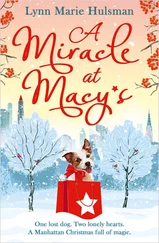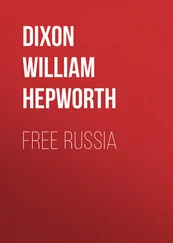Nikolai Nekrasov - Who Can Be Happy and Free in Russia?
Здесь есть возможность читать онлайн «Nikolai Nekrasov - Who Can Be Happy and Free in Russia?» весь текст электронной книги совершенно бесплатно (целиком полную версию без сокращений). В некоторых случаях можно слушать аудио, скачать через торрент в формате fb2 и присутствует краткое содержание. Год выпуска: 2005, Жанр: Поэзия, на английском языке. Описание произведения, (предисловие) а так же отзывы посетителей доступны на портале библиотеки ЛибКат.
- Название:Who Can Be Happy and Free in Russia?
- Автор:
- Жанр:
- Год:2005
- ISBN:нет данных
- Рейтинг книги:3 / 5. Голосов: 1
-
Избранное:Добавить в избранное
- Отзывы:
-
Ваша оценка:
- 60
- 1
- 2
- 3
- 4
- 5
Who Can Be Happy and Free in Russia?: краткое содержание, описание и аннотация
Предлагаем к чтению аннотацию, описание, краткое содержание или предисловие (зависит от того, что написал сам автор книги «Who Can Be Happy and Free in Russia?»). Если вы не нашли необходимую информацию о книге — напишите в комментариях, мы постараемся отыскать её.
Who Can Be Happy and Free in Russia? — читать онлайн бесплатно полную книгу (весь текст) целиком
Ниже представлен текст книги, разбитый по страницам. Система сохранения места последней прочитанной страницы, позволяет с удобством читать онлайн бесплатно книгу «Who Can Be Happy and Free in Russia?», без необходимости каждый раз заново искать на чём Вы остановились. Поставьте закладку, и сможете в любой момент перейти на страницу, на которой закончили чтение.
Интервал:
Закладка:
"And we? What are we for?
Just give us some sickles,
And see if we don't
Get some work done to-morrow!"
The peasants reply. 480
Matróna sees clearly
Enough that this offer
Must not be rejected;
"Agreed," she said, smiling,
"To such lusty fellows
As you, we may well look
For ten sheaves apiece."
"You give us your promise
To open your heart to us?"
"I will hide nothing." 490
Matróna Korchágin
Now enters her cottage,
And while she is working
Within it, the peasants
Discover a very
Nice spot just behind it,
And sit themselves down.
There's a barn close beside them
And two immense haystacks,
A flax-field around them; 500
And lying just near them
A fine plot of turnips,
And spreading above them
A wonderful oak-tree,
A king among oaks.
They're sitting beneath it,
And now they're producing
The magic white napkin:
"Heh, napkin enchanted,
Give food to the peasants!" 510
The napkin unfolds,
Two hands have come floating
From no one sees where,
Place a pailful of vodka,
A large pile of bread
On the magic white napkin,
And dwindle away.
The two brothers Goóbin
Are chuckling together,
For they have just pilfered 520
A very big horse-radish
Out of the garden—
It's really a monster!
The skies are dark blue now,
The bright stars are twinkling,
The moon has arisen
And sails high above them;
The woman Matróna
Comes out of the cottage
To tell them her tale. 530
CHAPTER I
THE WEDDING
"My girlhood was happy,
For we were a thrifty
Arid diligent household;
And I, the young maiden,
With Father and Mother
Knew nothing but joy.
My father got up
And went out before sunrise,
He woke me with kisses
And tender caresses; 10
My brother, while dressing,
Would sing little verses:
'Get up, little Sister,
Get up, little Sister,
In no little beds now
Are people delaying,
In all little churches
The peasants are praying,
Get up, now, get up,
It is time, little Sister. 20
The shepherd has gone
To the field with the sheep,
And no little maidens
Are lying asleep,
They've gone to pick raspberries,
Merrily singing.
The sound of the axe
In the forest is ringing.'
"And then my dear mother,
When she had done scouring 30
The pots and the pans,
When the hut was put tidy,
The bread in the oven,
Would steal to my bedside,
And cover me softly
And whisper to me:
"'Sleep on, little dove,
Gather strength—you will need it—
You will not stay always
With Father and Mother, 40
And when you will leave them
To live among strangers
Not long will you sleep.
You'll slave till past midnight,
And rise before daybreak;
You'll always be weary.
They'll give you a basket
And throw at the bottom
A crust. You will chew it,
My poor little dove, 50
And start working again….'
"But, brothers, I did not
Spend much time in sleeping;
And when I was five
On the day of St. Simon,
I mounted a horse
With the help of my father,
And then was no longer
A child. And at six years
I carried my father 60
His breakfast already,
And tended the ducks,
And at night brought the cow home,
And next—took my rake,
And was off to the hayfields!
And so by degrees
I became a great worker,
And yet best of all
I loved singing and dancing;
The whole day I worked 70
In the fields, and at nightfall
Returned to the cottage
All covered with grime.
But what's the hot bath for?
And thanks to the bath
And boughs of the birch-tree,
And icy spring water,
Again I was clean
And refreshed, and was ready
To take out my spinning-wheel, 80
And with companions
To sing half the night.
"I never ran after
The youths, and the forward
I checked very sharply.
To those who were gentle
And shy, I would whisper:
'My cheeks will grow hot,
And sharp eyes has my mother;
Be wise, now, and leave me 90
Alone'—and they left me.
"No matter how clever
I was to avoid them,
The one came at last
I was destined to wed;
And he—to my bitter
Regret—was a stranger:
Young Phílip Korchágin,
A builder of ovens.
He came from St. Petersburg. 100
Oh, how my mother
Did weep: 'Like a fish
In the ocean, my daughter,
You'll plunge and be lost;
Like a nightingale, straying
Away from its nest,
We shall lose you, my daughter!
The walls of the stranger
Are not built of sugar,
Are not spread with honey, 110
Their dwellings are chilly
And garnished with hunger;
The cold winds will nip you,
The black rooks will scold you,
The savage dogs bite you,
The strangers despise you.'
"But Father sat talking
And drinking till late
With the 'swat.' [45] The marriage agent.
I was frightened.
I slept not all night…. 120
"Oh, youth, pray you, tell me,
Now what can you find
In the maiden to please you?
And where have you seen her?
Perhaps in the sledges
With merry young friends
Flying down from the mountain?
Then you were mistaken,
O son of your father,
It was but the frost 130
And the speed and the laughter
That brought the bright tints
To the cheeks of the maiden.
Perhaps at some feast
In the home of a neighbour
You saw her rejoicing
And clad in bright colours?
But then she was plump
From her rest in the winter;
Her rosy face bloomed 140
Like the scarlet-hued poppy;
But wait!—have you been
To the hut of her father
And seen her at work
Beating flax in the barn?
Ah, what shall I do?
I will take brother falcon
And send him to town:
'Fly to town, brother falcon,
And bring me some cloth 150
And six colours of worsted,
And tassels of blue.
I will make a fine curtain,
Embroider each corner
With Tsar and Tsaritsa,
With Moscow and Kiev,
And Constantinople,
And set the great sun
Shining bright in the middle,
And this I will hang 160
In the front of my window:
Perhaps you will see it,
And, struck by its beauty,
Will stand and admire it,
And will not remember
To seek for the maiden….'
"And so till the morning
I lay with such thoughts.
'Now, leave me, young fellow,'
I said to the youth 170
When he came in the evening;
Интервал:
Закладка:
Похожие книги на «Who Can Be Happy and Free in Russia?»
Представляем Вашему вниманию похожие книги на «Who Can Be Happy and Free in Russia?» списком для выбора. Мы отобрали схожую по названию и смыслу литературу в надежде предоставить читателям больше вариантов отыскать новые, интересные, ещё непрочитанные произведения.
Обсуждение, отзывы о книге «Who Can Be Happy and Free in Russia?» и просто собственные мнения читателей. Оставьте ваши комментарии, напишите, что Вы думаете о произведении, его смысле или главных героях. Укажите что конкретно понравилось, а что нет, и почему Вы так считаете.











